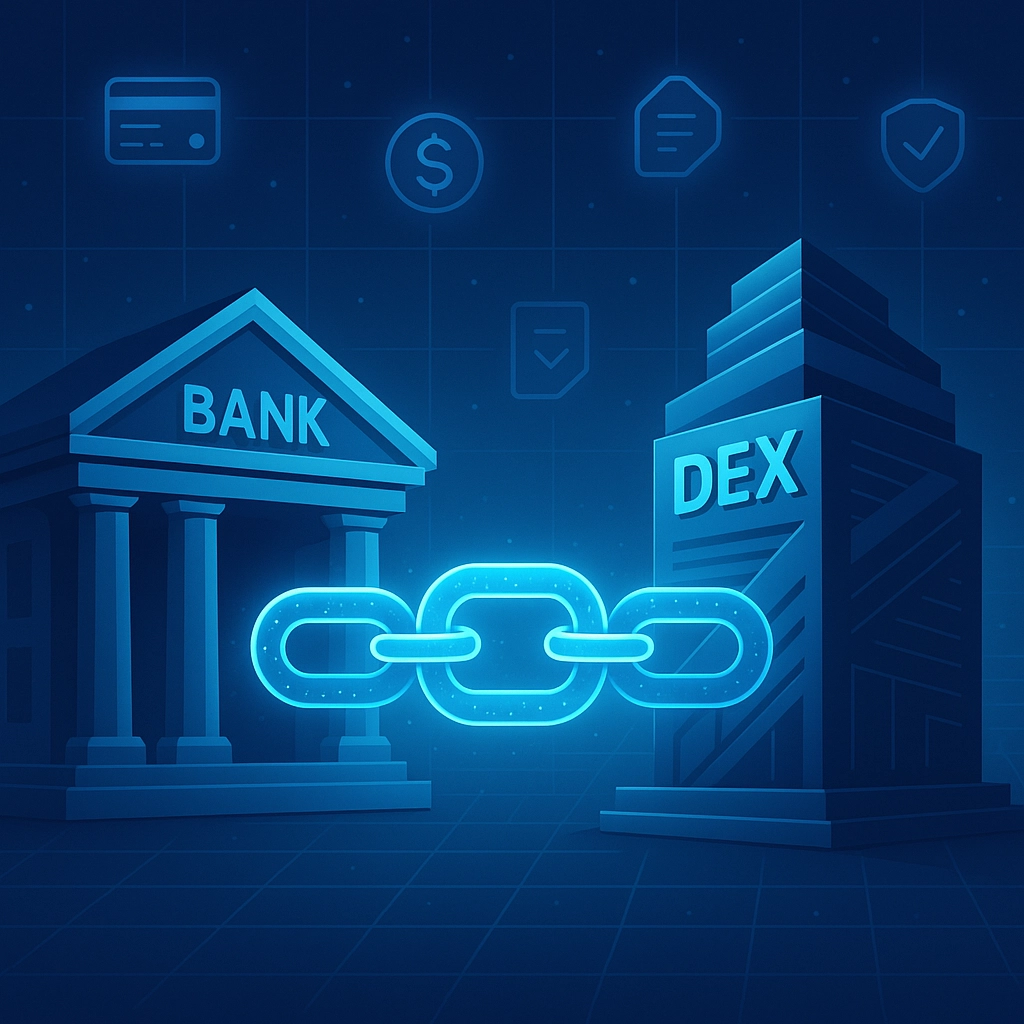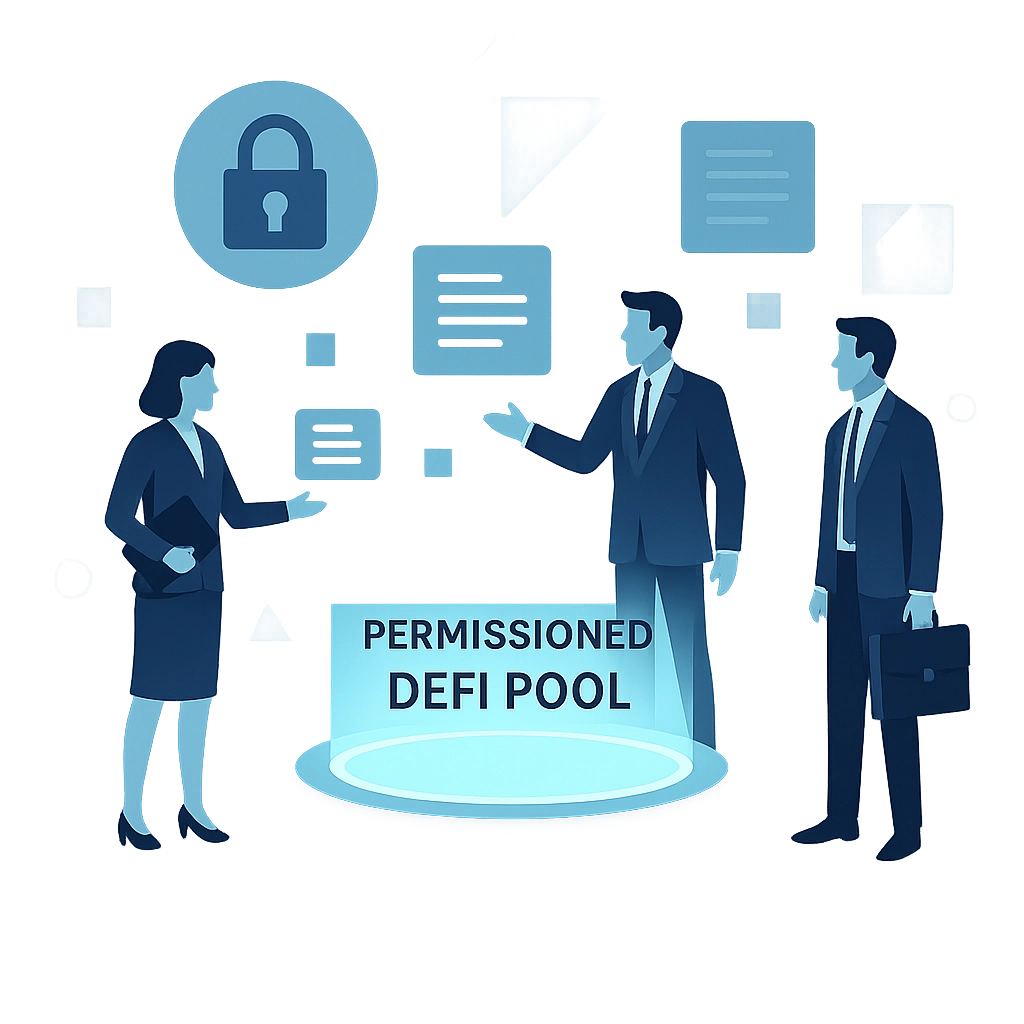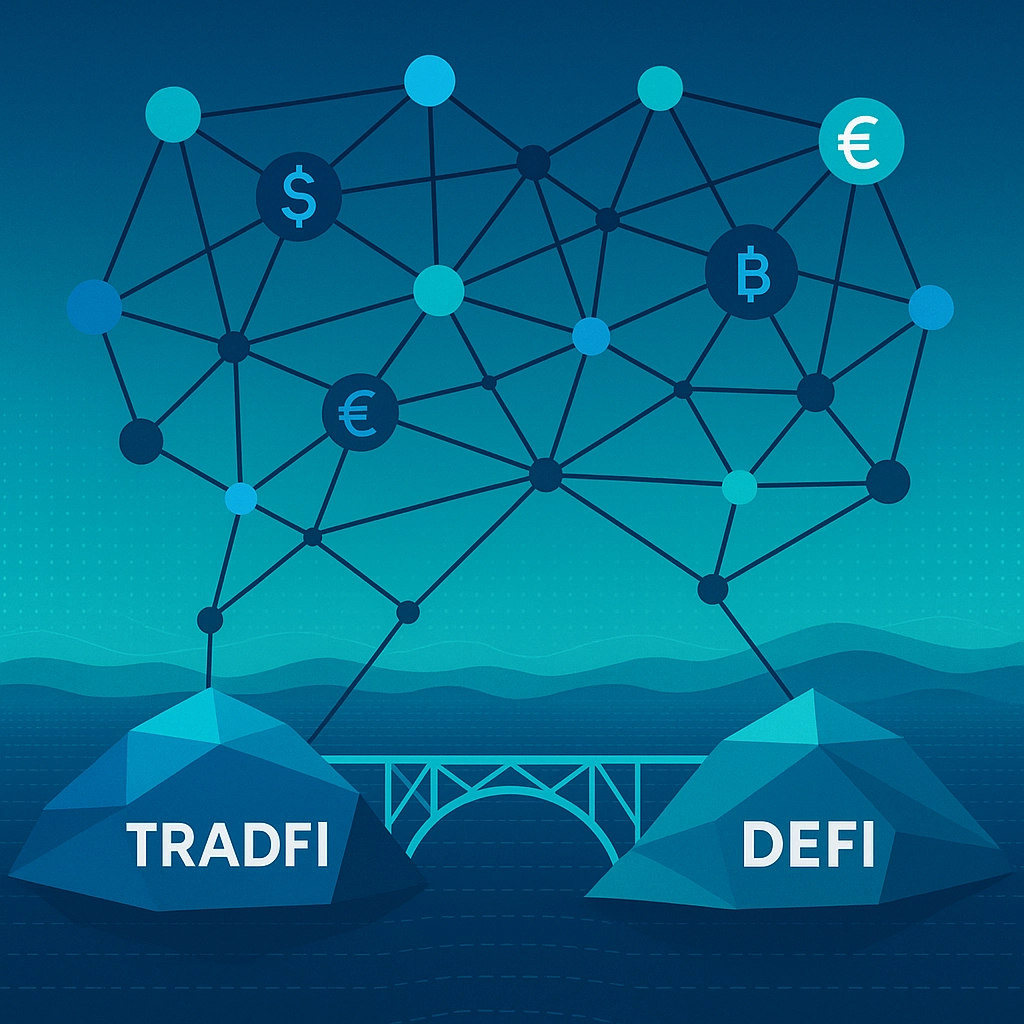TradFi Meets DeFi: How Blockchain Is Reshaping the Future of Banks and Payment Systems
- Kian Jackson

- Aug 21, 2025
- 4 min read
The boundaries between traditional finance (TradFi) and decentralised finance (DeFi) are fading fast. What once seemed like opposing financial universes are now increasingly intertwined, thanks to blockchain’s surge in adoption across mainstream banks and payment providers. The fusion is unleashing a new era for finance—combining the regulatory stability and scale of TradFi with the agility, innovation, and transparency of DeFi.
Blockchain in Banking: Beyond the Hype
Blockchain has moved from buzzword to boardroom agenda for many of the world’s biggest banks. Industry giants like JPMorgan are leading the charge, with initiatives like the Onyx platform enabling real-time cross-border payments, internal transfers, and innovative settlement solutions. By plugging blockchain’s efficiency and transparency into their legacy systems, banks are slashing costs, streamlining settlements, and offering a dramatically superior customer experience at global scale.
But it’s not just about efficiency; it’s about reinvention. Finance leaders now recognise that blockchain isn't simply a bolt-on—or a digital asset for speculation—but a new architecture for how value is created, stored, and moved.

Permissioned DeFi: The Best of Both Worlds
TradFi institutions operate in highly regulated environments, making pure-play DeFi a tricky proposition. That’s why hybrid models and institutional-grade DeFi platforms are gaining momentum. Take Aave Arc as a prime example—a permissioned liquidity pool purpose-built for financial institutions. It allows banks and asset managers to dip their toes in DeFi’s liquidity and programmability, while maintaining rigorous compliance and KYC standards.
Similarly, Visa’s partnerships with crypto wallets demonstrate the possibilities when payment giants build bridges to the digital asset economy. Customers can access crypto spend and settlements through familiar rails, while banks keep control of compliance. These collaborations prove that the future of banking isn’t decentralised or centralised—it’s both.
The Interoperable Finance Network
A core promise of blockchain is interoperability—a world where assets, payments, and data flow seamlessly across platforms, borders, and time zones. This vision is coming to life as TradFi and DeFi teams collaborate on shared standards and integration points.
Standardisation Efforts: Protocols like FIX, long used in banking, are now being woven into blockchain environments. This not only eases integration, but also ensures all participants “speak the same language”, avoiding the risk of mishandling data on an immutable ledger.
Programmable Payments: Imagine cross-border transfers or large settlements that self-execute when contractual triggers are met. That’s no longer just a concept. Smart contracts are enabling real-time, frictionless settlements and compliance automation—reducing manual workloads and error rates.

Navigating Technical and Regulatory Roadblocks
While progress is undeniable, convergence isn’t seamless. Blockchain-based systems still face:
Latency: Most blockchains can’t yet match the sub-second transactions of traditional clearing houses. High-frequency trading remains out of reach in most DeFi settings, although solutions like Solana and Ethereum Layer 2 are closing the gap.
Data Quality & Immutability: Once recorded on-chain, bad data can’t be erased. This underscores the need for robust data validation and common asset definitions before plugging into global payment and clearing systems.
Regulatory Uncertainty: The rapidly evolving compliance landscape can stall large-scale adoption. Regulators globally are racing to update frameworks for this new paradigm, but legal clarity remains patchy—especially for cross-border transactions.
Industry leaders are tackling these challenges head-on, often via consortiums and industry sandboxes designed for experimentation, knowledge sharing, and building new standards.
Transforming Payment Systems: The Practical Wins
The most immediate and visible changes are happening in payments. With blockchain, the future of payments is programmable, transparent, and near-instant.
Cross-Border Simplification: Gone are the days of international transfers taking days. Blockchain-powered networks deliver real-time, low-fee cross-border payments—directly benefitting everyone from global corporations to expats remitting home.
Reduced Fraud & Greater Transparency: Every transaction is traceable and auditable in real time, slashing operational risk and simplifying anti-fraud and AML processes.
Programmable Compliance: Smart contracts can embed regulatory checks directly into transactions, enforcing rules with no manual intervention.
Banks, payment processors, and fintechs are rolling out pilot projects and production deployments—fundamentally changing the DNA of global settlements.

The Road Ahead: Convergence and Competition
So, what does this all mean for the finance industry? The move to hybrid, blockchain-enabled systems is accelerating. DeFi brings speed, innovation, and 24/7 access. TradFi brings deep expertise, customer trust, and robust regulatory infrastructure.
The winners will be those who can blend both worlds: offering compliant, user-friendly products powered by programmable money and smart contracts, all without sacrificing the reliability and trust that customers expect from traditional banks.
Institutions that ignore the blockchain wave risk being left behind. Those who embrace it and collaborate across the old and new will lead in a world where financial systems are truly open, resilient, and borderless.

Ready to Take the Next Step?
If you’re keen to explore how blockchain and hybrid DeFi solutions can transform your organisation—or simply want to stay ahead of the curve in payments and financial technology—check out our in-depth resources at Kian Jackson Fintech Consulting. Or reach out to our expert team directly and let's put innovation to work for you.
Want an in-person strategy session? Contact us here — or visit our friends at RivaTech Consulting for additional industry expertise.
Stay ahead. Build the future of finance today.

Comments